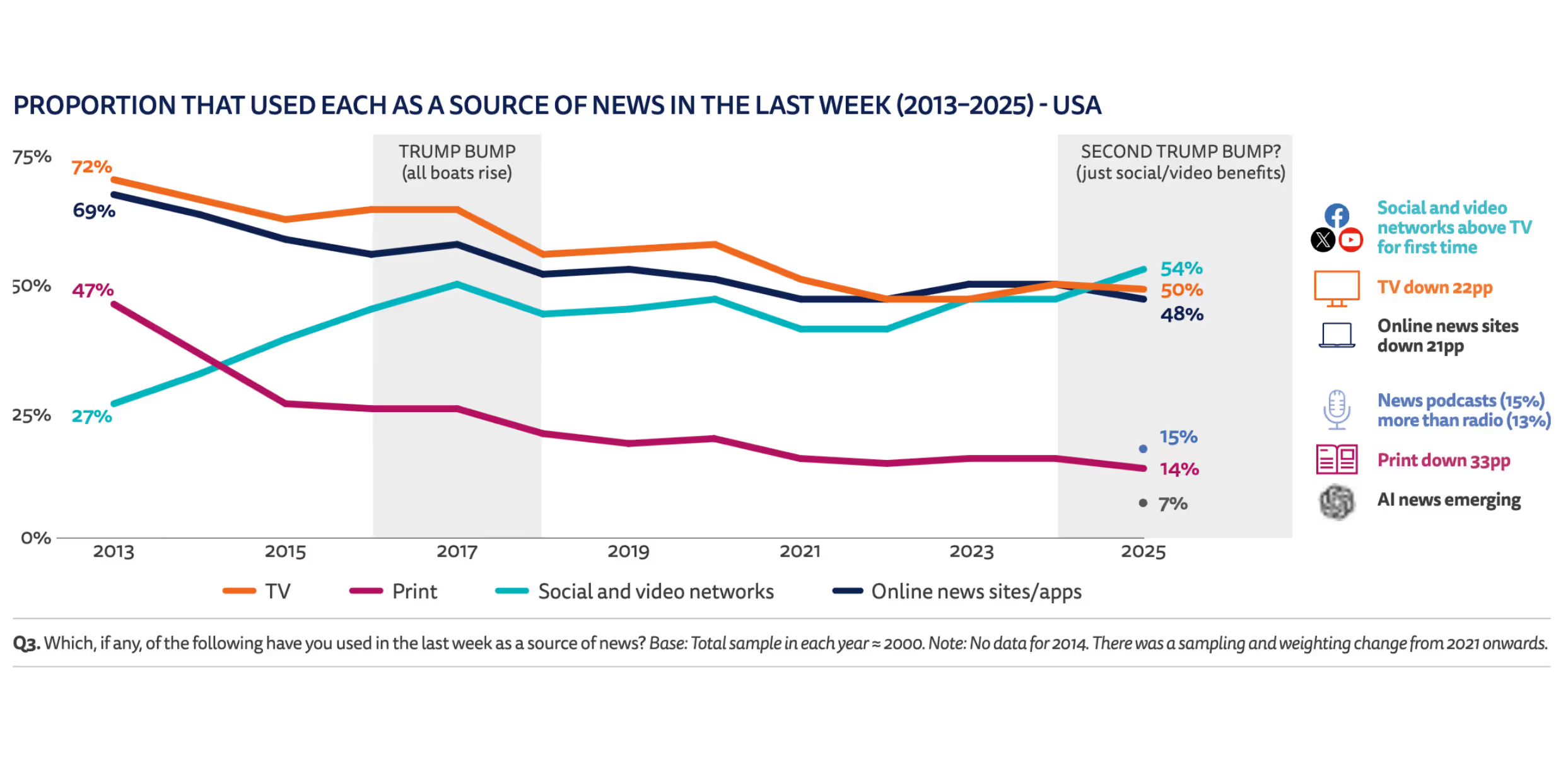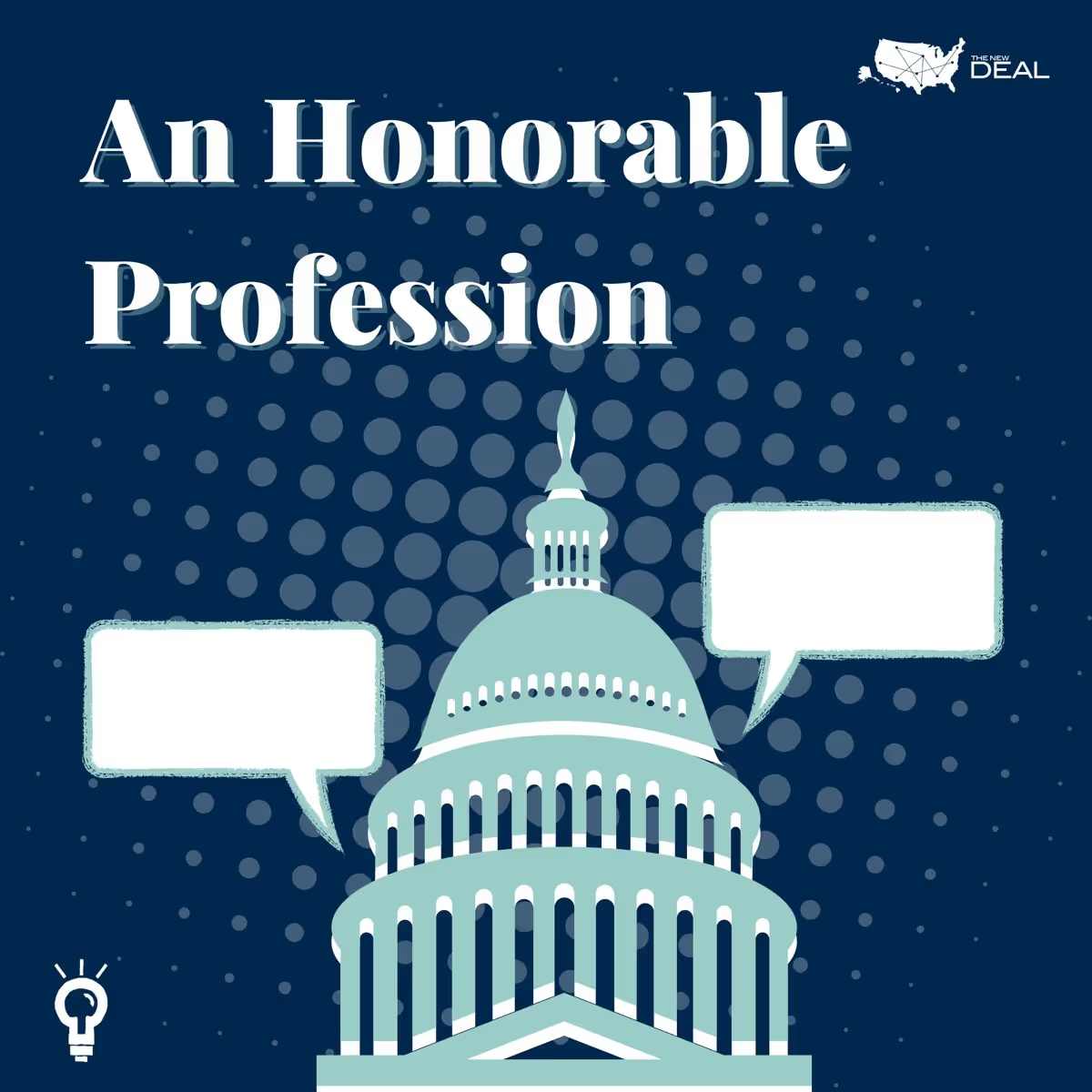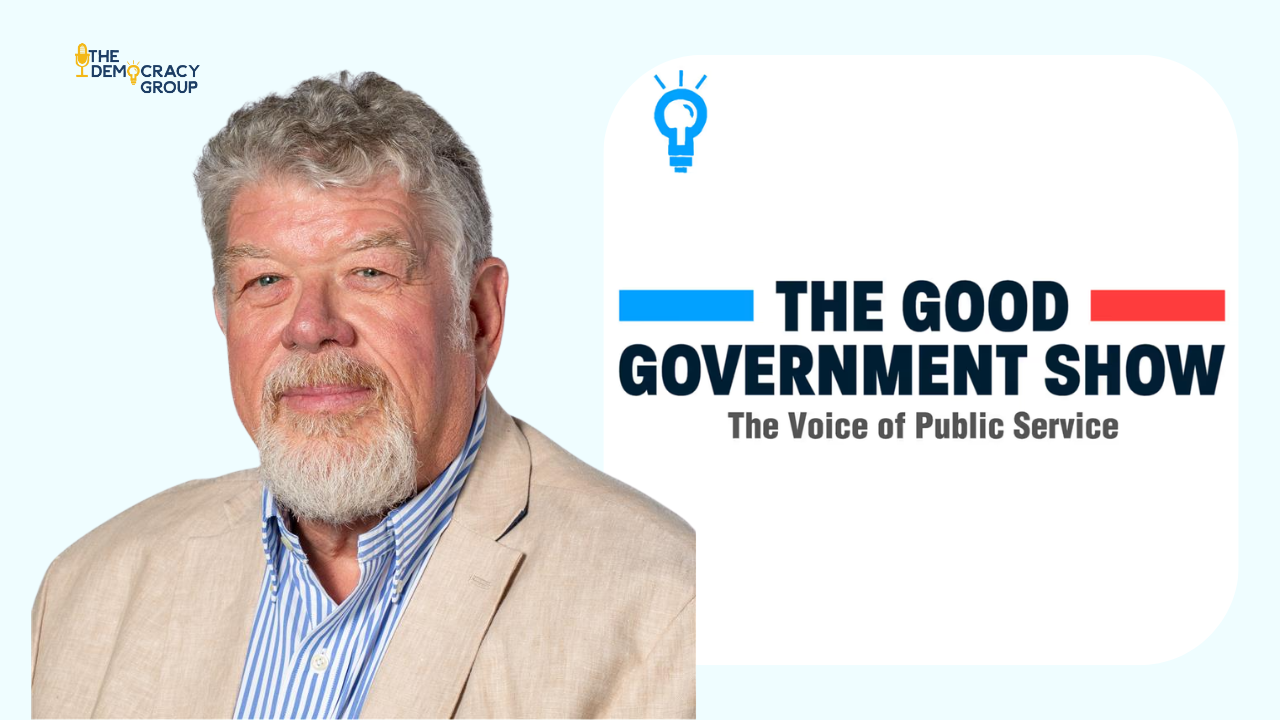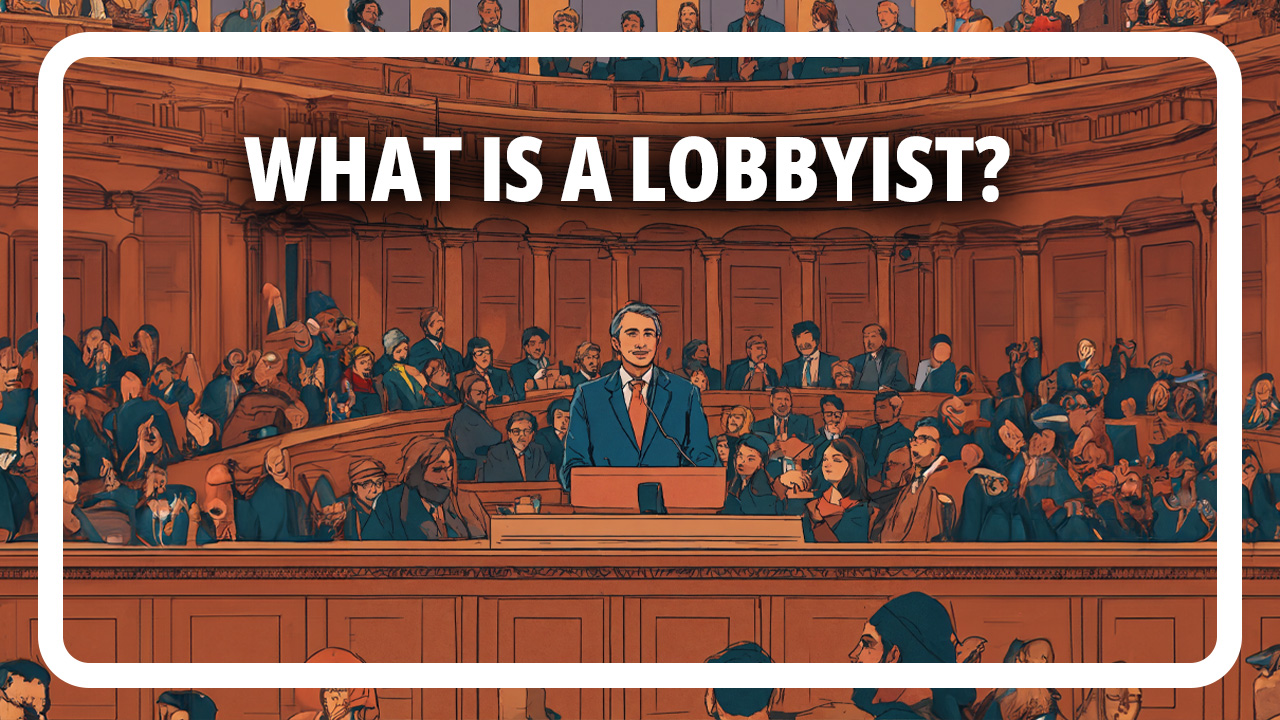
Trust in American mainstream media outlets is at its lowest in five decades, and news consumers have largely turned to social media for information. For the first time, traditional news sources are losing influence in the U.S. as social media overtakes TV as Americans’ top news source.
A recent study by Oxford’s Reuters Institute for the Study of Journalism revealed that social media and personality-based news are on the rise in other countries, but these changes are happening especially “faster and with more impact” in the U.S., according to an article by Nieman Lab. With 61% of surveyed Americans using any social/video network to access online news video compared to just 29% who use a news website/app, content creators now play a significant role in the rise of news video consumption across networks.
The study also reveals other notable findings:
But the rise in alternative news sources poses a challenge for online news: Fragmentation of news consumption, where at least 10% of news consumers use six platforms with weekly news: Facebook, YouTube, Instagram, WhatsApp, X and TikTok.

Who's more qualified to talk about TikTok news consumption than a TikTok news creator?
This episode features insights from V Spehar, who has roughly 3.6 million followers on the TikTok account Under the Desk News that provides recaps of daily news for the TikTok audience. An independent journalist and many Gen Z and Millennials' go-to source for news, Spehar talks about their politically diverse audience and the power of social media.
Subscribe to receive a biweekly collection of the hottest podcast episodes from the network, upcoming special events, expert features, and news from your favorite shows.
Subscribe to our NewsletterThis is Jessie Nguyen, The Democracy Group's Community Manager. Here are some of my favorite podcasts this week, check them out!

The Atlantic staff writer Thomas Chatterton Williams joined this episode to discuss the changes between the 2008 election of the first black president and Trump's reelection in 2024, as detailed in his new book, "Summer of Our Discontent." Williams also shared how his biracial upbringing shapes his worldview and explored race, identity, cancel culture and the toxic effects of social media.

Hawaii State Senator Troy Hashimoto discussed Maui's many challenges, among them natural disasters and a housing crisis. The Maui native shared some of his best practices for coordinating disaster safety efforts, improving the local economy after the pandemic and why you should visit Maui.

Hilary Braseth is the executive director of OpenSecrets, a nonpartisan nonprofit that follows money in U.S. politics and ensures transparency in campaign finance. Braseth joined this episode to talk about her career in entrepreneurship, public service and using data on money in politics to create a more representative and responsive democracy.

Brian Derrick is a political strategist, activist and tech founder of the online Democratic fundraising platform Oath. He has also served as an advisor/consultant to candidates, organizations, and celebrities like Ryan Reynolds, Julia Louis-Dreyfus and Senator Kirsten Gillibrand. Derrick has built a large following on social media with his digestible breakdowns of news and politics.

Aaron Reichlin-Melnick is the Policy Director at the American Immigration Council, a non-profit organization that strives to strengthen the U.S. by shaping immigration policies and practices. Prior to joining the Council, Reichlin-Melnick represented immigrants placed in removal proceedings because of a prior criminal conviction as part of his work at the Immigration Law Unit of The Legal Aid Society in New York City
Subscribe to receive a biweekly collection of the hottest podcast episodes from the network, upcoming special events, expert features, and news from your favorite shows.
Subscribe to our Newsletter
Host Dave Martin talks about “good government” stories, why they’re absent from mainstream media and what the show has planned for 2026.
Read Post
What is a lobbyist—and how does lobbying really work? Explore direct, indirect, and shadow lobbying through real-world examples to understand how power, money, and citizen action shape public policy in American democracy.
Read Post.png)
We kickstart the year with the exciting release of our fall 2025 fellows' podcasts and their inaugural episodes!
Read Post